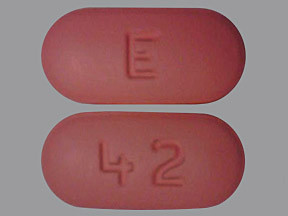FEXOFENADINE - ORAL
PHONETIC PRONUNCIATION: (fex-oh-FEN-uh-deen)
COMMON BRAND NAME(S): Allegra
GENERIC NAME(S): fexofenadine HCl
Uses
USES: Fexofenadine is an antihistamine used to relieve allergy symptoms such as watery eyes, runny nose, itching eyes/nose, sneezing, hives, and itching. It works by blocking a certain natural substance (histamine) that your body makes during an allergic reaction.
How to use FEXOFENADINE - ORAL
HOW TO USE: If you are taking the over-the-counter product to self-treat, read all directions on the product package before taking this medication. If you have any questions, consult your pharmacist. If your doctor has prescribed this medication, take it as directed, usually 2 times daily (every 12 hours). If you are using the liquid form of this medication, shake the bottle well before each dose and measure the dose carefully using a special measuring device/spoon. Do not use a household spoon because you may not get the correct dose. Take the tablet/capsule or liquid form of this medication with or without food. If you are using the rapidly-dissolving tablet, take it on an empty stomach. Allow the rapidly-dissolving tablet to dissolve on the tongue and then swallow, with or without water. Do not remove the tablet from the blister pack until right before using. If you need a liquid to take this medication (such as when taking the tablets/capsules), then take this medication with water. Do not take with fruit juices (such as apple, grapefruit, or orange) since they may decrease the absorption of this drug. The dosage is based on your age, medical condition, and response to treatment. Do not increase your dose or take this medication more often than directed. Do not take antacids containing aluminum and magnesium within 2 hours of taking this medication. These antacids can decrease the absorption of fexofenadine. Tell your doctor if your condition does not improve or if it worsens.
Side Effects
Precautions
Interactions
Overdose
Images

- color
- orange-peach
- shape
- oblong
- imprint
- E, 42
Reviews
Faq for FEXOFENADINE - ORAL
Fexofenadine is an antihistamine medication that is used to relieve symptoms such as sneezing, runny nose, itchy or watery eyes, and itching of the nose or throat caused by allergies.
Fexofenadine works by blocking the action of histamine, a substance produced by the body during an allergic reaction. By blocking histamine, fexofenadine helps to alleviate allergy symptoms.
Fexofenadine is primarily used to treat the symptoms of seasonal allergies, such as hay fever, as well as chronic idiopathic urticaria (long-lasting hives without a known cause).
Fexofenadine is usually taken orally, with or without food. Follow the instructions provided by your healthcare professional or the medication's label. It is important to swallow the tablets whole and not chew or crush them.
Common side effects of fexofenadine may include headache, dizziness, drowsiness, nausea, or stomach upset. However, these side effects are generally mild and temporary. If you experience severe or persistent side effects, be sure to consult your doctor.
Before taking fexofenadine, inform your doctor about any other medications you are currently taking, including prescription, over-the-counter, or herbal products. Certain medications, such as ketoconazole or erythromycin, may interact with fexofenadine and affect its effectiveness or increase the risk of side effects.
Fexofenadine can be used in children over 2 years of age for the treatment of seasonal allergies. However, the recommended dosage may vary based on the child's age and weight, so it is important to consult a healthcare professional for appropriate dosing instructions.
Fexofenadine is generally considered a non-drowsy antihistamine. However, some individuals may experience drowsiness or sedation as a side effect. If you experience drowsiness, it is advised to avoid driving or operating machinery until you know how the medication affects you.
In many countries, including the United States, fexofenadine is available both over-the-counter and by prescription. The strength and dosage may vary between the two options. It is recommended to consult a healthcare professional for guidance on the most appropriate form of fexofenadine for your condition.
Disclaimer
IMPORTANT: HOW TO USE THIS INFORMATION: This is a summary and does NOT have all possible information about this product. This information does not assure that this product is safe, effective, or appropriate for you. This information is not individual medical advice and does not substitute for the advice of your health care professional. Always ask your health care professional for complete information about this product and your specific health needs.
No Reviews Yet